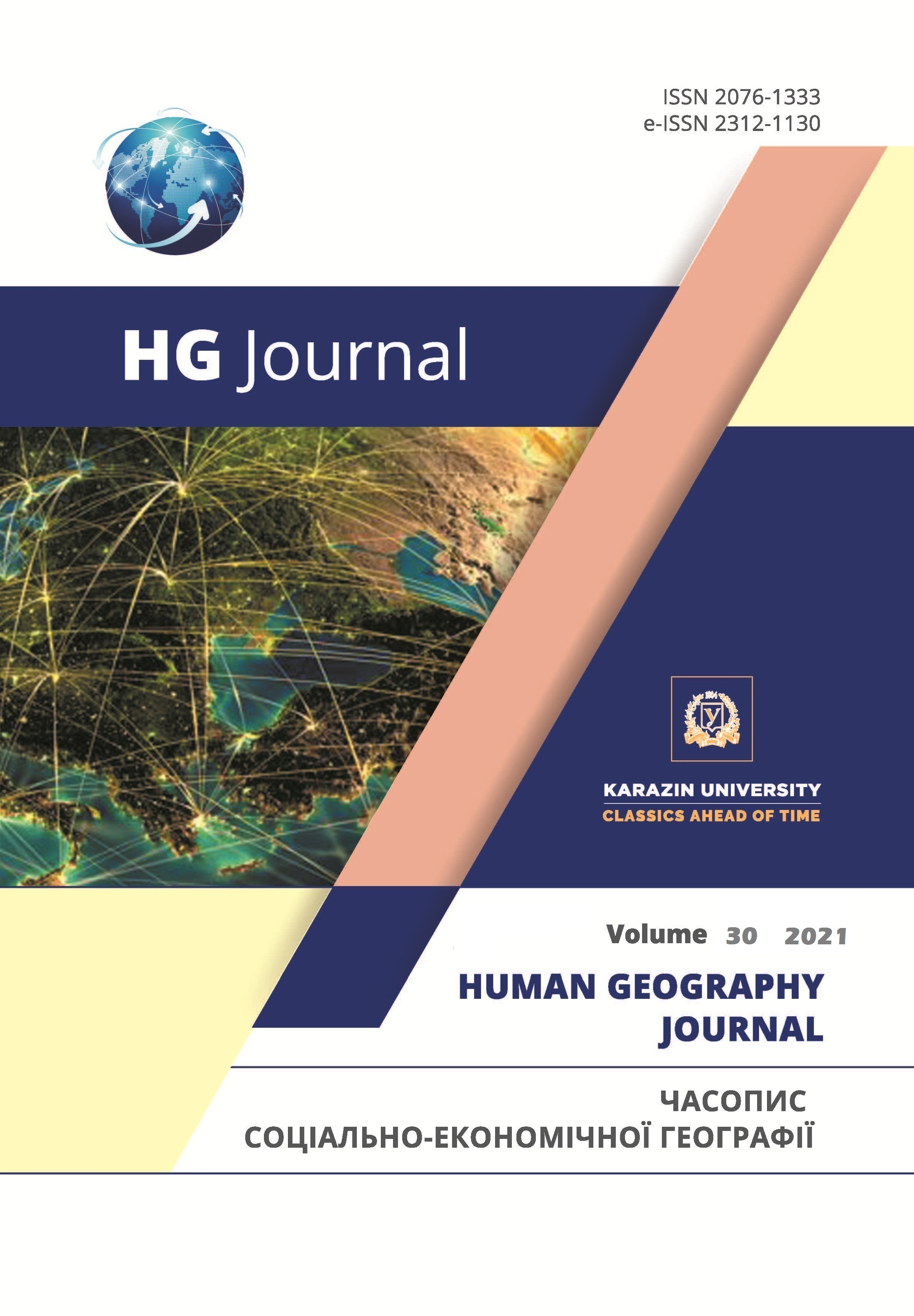Adaptive tourism: world and national experience
Abstract
The modern experience of the organization of the services for the people with disabilities in the world and the national tourist market has been characterized in the article. After all, the person disability is a social phenomenon, no country can avoid it, and therefore, the priority is the formation of the policy as for the providing of the help to a special category of the population. The fact that tourism is one of the important forms of the social rehabilitation and the adaptation of the low-mobility category of the population to the conditions of the environment, which can be unnoticed by the authorities and the society.
Today, the significant changes are occurred in the tourist markets of many countries such as the people with disabilities and people with the limited physical and the psychophysicalabilitiesare involved to the general tourist space, and the development of the special tourist programs considering the accessibility for the people with disabilities creates the equal capabilities for the realization of the rights of every people to the rest. Tourism for this category of the people in our country is one of the new directions of the activity, its social significance is due, in particular, to the fact that the relative and the absolute number of the people with the different types of the physical and the psychophysical disabilities increases constantly. Due to the imperfection of the systemof the health care, the increase of the number of the traffic accidents, the operation in the east of our country, the number of the people with the disabilities increases constantly, and therefore, growing demand in the organization of the specialized measures as for the social and the physical rehabilitation. Tourism in our country is not fully accessible type of the activity for the special category of the population. The tourist sphere of Ukraine is practically not ready to the providing of the tourist services to the people with the special demands, the recreational zones are not adapted to their abilities and the requirements, there is a lack of the methods and the experience of the specialists.
The powerful base of the tourist resources of Ukraine remains partially inaccessible for the visiting of the people with disabilities. The analysis of the experience of the countries which have the tourist zones, the tourist routes, the objects which correspond to the special architectural standards will be allowed creating "accessible" tourist infrastructure.
Downloads
References
Ahmetshin, A.M. (2000). Turizm kak netradicionnyj metod reabilitacii i ozdorovleniya invalidov i pozhilyh lyudej v usloviyah rynochnoj ekonomiki [Tourism as an unconventional method of rehabilitation and health improvement of disabled and elderly people in a market economy], BRO VOI, Ufa, 92 р. [in Russian].
Beidyk, O.O. (1997). Slovnyk-dovidnyk z geografii turyzmu, rekrealogii ta rekreatsiynoi geografii [Dictionnaire-directory of geography of tourism, rekreation and recreation geography], Palitra, Kyiv, 86 р. [in Ukrainian].
Beіdуk, O.O., & Topalova, O.І. (2017). Adaptyvnyi turyzm: peredumovy ta perspektyvy rozvytku, lіdery Dukhu і Volі [Adaptive tourism: preconditions and prospects of development, leaders of Spirit and Will]. Kherson, OLDІ-PLYUS, 402 p. [in Ukrainian].
Beіdуk, O.O. (2018), Lidery Duxuta і Voli v zhytti, mystecztvi ta literaturi [Leaders of Spirit and Will in life, art and literature]. – PrintService, Kyiv 280 р. [inUkrainian].
Beіdyk, O.O., Topalova, O.I., & Prokhorova, L.A. (2019). Transformatsiya regionalnoho turyzmu za umov detsentralizatsii (na prykladi Zaporizkoi oblasti) [Transformation of regional tourism under conditions of decentralization (on the example of Zaporizhia region)]. Ukrainian Geographical Journal, 3, 37-42 [in Ukrainian]. https://doi.org/10.15407/ugz2019.03.037
Byrzhakov, M.B. (2006). Vvedenie v turizm [Introduction to tourism]. Petersburg, Gerda Publishing House, 512 р. [in Russian].
Evropeyska asotsiatsiya dostupnoho turyzmu (ENAT) [European Association for Affordable Tourism (ENAT)] Re-trieved from https://www. Accessible tourism.org/ [in Ukrainian].
Evseev, S.P., & Aksenov O.E. (2007). Tekhnologіi fizkulturno-sportyvnoy deyatelnosti v adaptivnoy fizicheskoy kulture [Technologies of physical culture and sports activity in adaptive physical culture], Soviet grade, 296 р. [in Russian].
Klyap, M.P., & Shandor, F.F. (2011). Suchasni riznovydy turyzmu [Modern varieties of tourism]. Kyiv, Knowledge, 334 р. [in Ukrainian].
Kontseptsіya OON pro prava іnvalіdіv [The OON concept of the rights of persons with disabilities]. Retrieved from https://www.coe.int/ru/web /compass/ convention-on-the-rights-of-persons-with-disabilities [in Ukrainian].
Krachilo, N.P. (1987). Geografiya turizma [Geography of tourism]. Kyiv, Higher school, 208 р. [in Russian].
Rekomendatsіi po dostupnomu turyzmu na osnovі rezolyutsіi A/RES/637(XX) Generalnoi Assamblei YUNVTO [Rec-ommendations on accessible tourism based on UNWTO General Assembly resolution A / RES / 637 (XX)]. – Retrieved from http://www.disright.org/sites/default/files/source/12.12.2016/yunvto_rekomendacii_po_ dostupnomu_turizmu.pdf [in Ukrainian].
Sazhnieva, N.M., & Arsenenko, I.A. (2007). Rekreatsiyna geografiya ta turyzm (slovnyk-dovidnyk suchasnykh terminologichnykh ponyat) [Recreational geography and tourism (dictionary-reference book of modern terminological concepts)]. Melitopol, Suite, 254 р. [in Ukrainian].
Sigida, E.A. (2011). Adaptivnyi turizm – sotsialnoe napravlenie razvitiya turisticheskikh uslug [Adaptive tourism – the social direction of development of tourist services]. Bulletin of the Association of Universities of Tourism and Service, 38-42 [in Russian].
Molly Story, James Mueller, & Ron Mace (1998). The Universal Design File: Designing for People of All Ages and Abilities, 242 р.
Zsarnoczky, M. (2017). Accessible Tourism in the European Union. Retrieved from https://www.researchgate.net/publication/320226151_Accessible_Tourism_in_the_European_Union
Copyright (c) 2021 Alexandr Beydik, Olesia Topalova

This work is licensed under a Creative Commons Attribution 4.0 International License.




